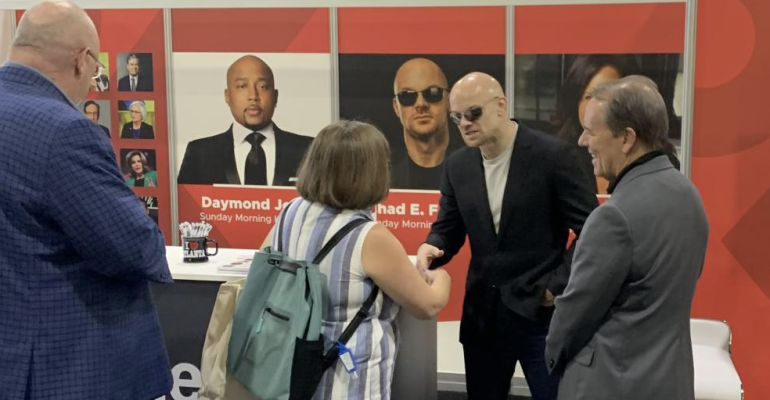With the assistance of his guide dog, Chad Foster stepped to the stage at the American Society of Association Executives’ Annual Meeting & Exposition in August and said, “I am more successful blind than I would have been with sight.”
From age three, Foster knew he had a progressive eye disease that would one day make him completely blind. That time came in college, but Foster was still not prepared for it. “Knowing that I’d read my last page of print, watched my last football game, seen my last sunset, and that life as I had known was at an end, hopelessness wrapped itself around me.”
However, Foster mustered up the strength to embrace a new philosophy: We become the stories we tell ourselves. “If I thought, ‘I’m a victim,’ then that is what I would be,” he said to ASAE’s 3,000-plus attendees. “Instead, I told myself, ‘I’m one of the few people on the planet with the toughness to deal with this and use it to help others.’ I reframed my struggle into a strength.”
That approach worked in spades. Foster became the first blind executive to graduate from Harvard Business School’s Program for Leadership Development. Today, he's an executive at Red Hat, the world’s largest open-source software company, where he directs billion-dollar financial strategies and decisions for technology clients. He also speaks at business conferences and has written a book titled Blind Ambition: How to Go from Victim to Visionary. And in his personal life, he’s a husband, father of two, and avid skier and surfer.
Advice for Association Executives and Planners
Understand and embrace your purpose. “I found that my purpose is to help people become better,” Foster told ASAE attendees. “What is an association’s purpose? To transform society for the better by preparing its members.” From that starting point, “tell the right stories to your team that will lead to the desired ending,” define the specific purposes your association has for its members, and start acting towards those purposes.
Force yourself to get comfortable with discomfort. “When you do that, you can make progress because you learn not to panic, to step through the anxiety, and find a way to make things work,” Foster said. “Your comfort zone expands, and then your association can further experiment and innovate for the benefit of its members.”
Navigate through ambitious change initiatives step by step. Foster relates this to his approach to skiing a mountain and surfing ocean waves. First, “I do not focus on the bottom of the mountain; I only focus on making the next turn,” he said. Then “I acknowledge that, on occasion, the flow is going to go against me. When it does, I don’t try to fight it; I roll with that wave until I’m back in control.” Similarly, when there’s a complication in a change initiative, “create the right perspective for that moment and choose a response” that lets you finish the ride.






